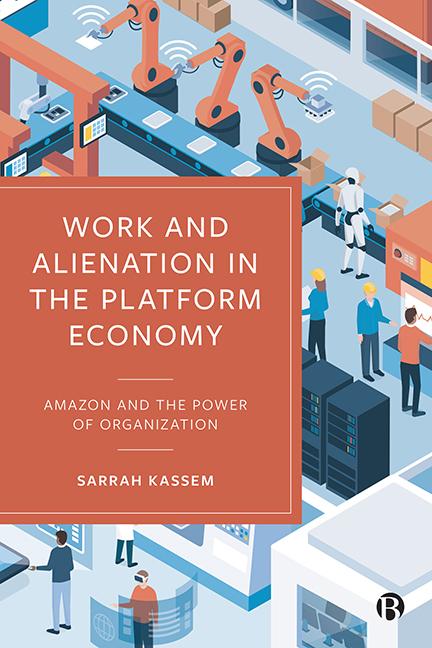1 - Introduction
Published online by Cambridge University Press: 18 January 2024
Summary
It is becoming more and more difficult to imagine our daily lives without digital platforms. To order something, we check Amazon and its reviews; to search online, we Google; to go somewhere, we Uber; and we Netflix and chill. We rely on Facebook or its WhatsApp and Instagram for our social relations, while we browse TikTok for content – entertaining at times, political at others. But our contact with these platforms may not always be so obvious. We could just be using a website that is a client of Amazon Web Services (AWS) or stumble across some data that Amazon Mechanical Turk (MTurk) workers contributed to. We could even be one of these very workers. Indeed, it takes a substantial effort to avoid these platforms, as they have come to form an intrinsic part of our social fabric and vocabulary. Relatively speaking, our degree of contact with one or more of these platforms is of course not devoid of privileges, class, racialized and gendered relations, and questions of access that are not uniform across our world. Generally speaking, the presence of platforms in our lives has only been magnified and accelerated by COVID-19, as the Internet plays a growing role in the mediation of our social relations, labor relations and, more generally, our daily lives. In the process, the societal, political and economic powers of platforms have become increasingly apparent in recent years; meanwhile these platforms have accumulated an enormous amount of wealth that has not been shared equally.
It is now clear that these platforms, which were once celebrated in the name of entrepreneurship for the novel ways by which they have instrumentalized the Internet in the pursuit of profit, are shaping and reshaping the world of work and of workers. This is a book about these workers, who power the platform economy, although many of them appear invisible to us behind our screens. This raises an array of questions. What are the different ways in which platforms are structured? How do workers organize and reshape these in the face of their alienating working conditions, which fragment them and atomize them from one another?
- Type
- Chapter
- Information
- Work and Alienation in the Platform EconomyAmazon and the Power of Organization, pp. 1 - 12Publisher: Bristol University PressPrint publication year: 2023



